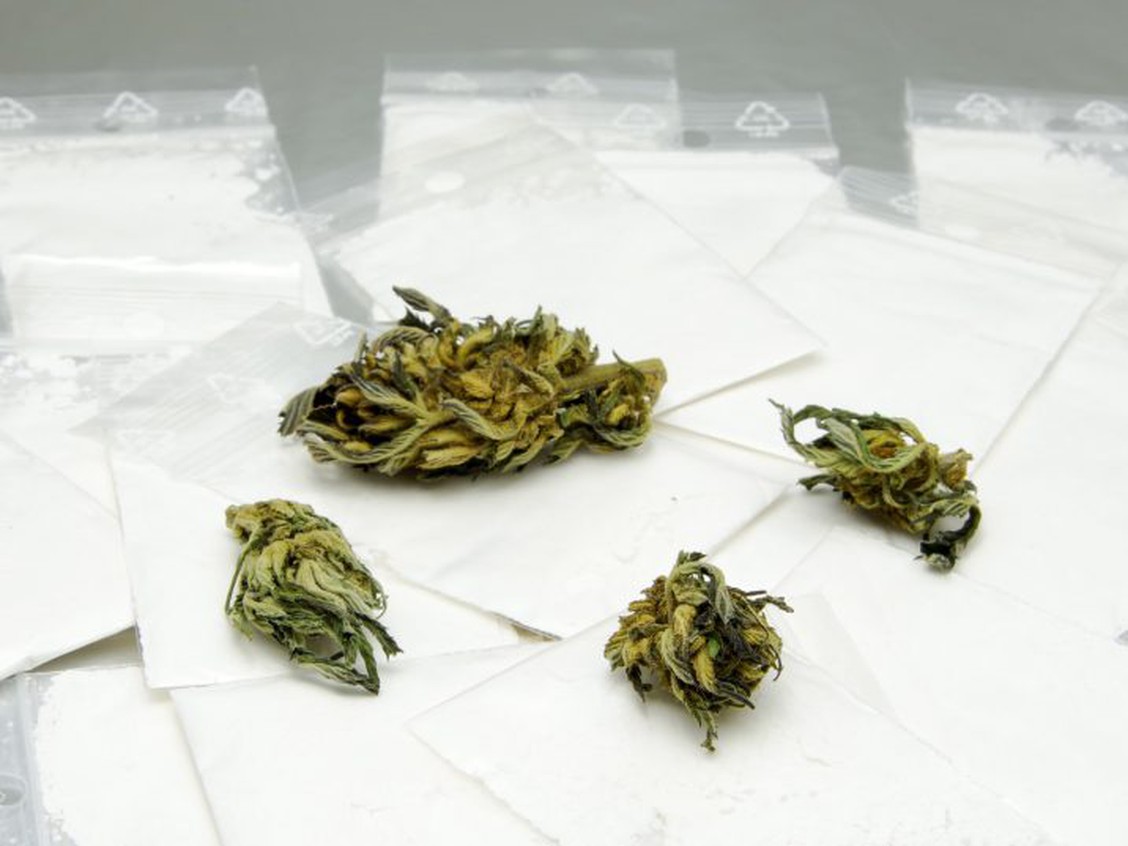You are here
Home 🌿 Medical Cannabis News 🌿 Think cannabis can help kick a cocaine habit? Montreal researchers say no 🌿Think cannabis can help kick a cocaine habit? Montreal researchers say no

Cannabidiol, known as CBD, appears to do little to effectively treat cocaine dependence and performed no better than a placebo, suggests a new study out of the Centre hospitalier de l’Université de Montréal’s (CHUM) Research Centre.
The clinical trial at CHUM involved 78 participants who had cocaine use disorder, which was severe for the majority of the participants. Randomly split into two groups, one group received 800 mg of CBD daily and the other got a placebo.
After completing a 10-day, in-patient detoxification period, each subject then received weekly follow-ups for 12 weeks, a statement from CHUM notes.
“Cannabidiol did not reduce cocaine craving or relapse among people being treated for cocaine use disorder,” states the study, published last week in Addiction.
The scientific team acknowledges that CBD has attracted much interest as a possible addiction treatment — including for cocaine use disorder, which develops in about one in every five regular users in North America — but add the current findings don’t bear that out.
“In our study, the use of CBD was not more effective than a placebo in treating cocaine use disorder,” says Violaine Mongeau-Pérusse, the study’s first author and a Ph.D. student in the Didier Jutras-Aswad Research Laboratory.

“Cocaine use disorder is a significant public health concern for which no efficacious pharmacological interventions are available.” / PHOTO BY GENIUSKP / ISTOCK / GETTY IMAGES PLUS
“Although it is safe and produces only mild side effects [the treatment was associated mainly with diarrhea], it reduces neither the craving to use nor the risk of relapse after detoxification,” Mongeau-Pérusse adds.
“Cocaine use disorder is a significant public health concern for which no efficacious pharmacological interventions are available,” the study notes.
With existing scientific evidence related to using cannabis to treat the disorder being very limited, the CHUM statement adds that the most recent “conclusive results provide guidelines on the therapeutic use of CBD, which has seen growing popularity in Canada and elsewhere in the world.”

The most recent “conclusive results provide guidelines on the therapeutic use of CBD.” / PHOTO BY ISTOCK / GETTY IMAGES PLUS
However, a review of related studies published last fall in Pharmacology Biochemistry and Behavior was more optimistic about CBD’s potential role in treating cocaine use disorder.
Evidence from the review — none of the studies involved human — “indicates that CBD is a promising adjunct therapy for the treatment of cocaine dependence due to its effect on: cocaine reward effects, cocaine consumption, behavioural responses, anxiety, neuronal proliferation, hepatic protection and safety.”
Researchers did note, though, that “clinical trials are strongly required to determine whether the findings in animal models occur in humans diagnosed for cocaine or crack cocaine use disorder.”
According to Science Advances, using dopamine agonists looks to be “the most promising pharmacological strategies for cocaine use disorder treatment thus far.” Combination drugs, the article adds, “may be especially promising.”
420 Intel is Your Source for Marijuana News
420 Intel Canada is your leading news source for the Canadian cannabis industry. Get the latest updates on Canadian cannabis stocks and developments on how Canada continues to be a major player in the worldwide recreational and medical cannabis industry.
420 Intel Canada is the Canadian Industry news outlet that will keep you updated on how these Canadian developments in recreational and medical marijuana will impact the country and the world. Our commitment is to bring you the most important cannabis news stories from across Canada every day of the week.
Marijuana industry news is a constant endeavor with new developments each day. For marijuana news across the True North, 420 Intel Canada promises to bring you quality, Canadian, cannabis industry news.
You can get 420 Intel news delivered directly to your inbox by signing up for our daily marijuana news, ensuring you’re always kept up to date on the ever-changing cannabis industry. To stay even better informed about marijuana legalization news follow us on Twitter, Facebook and LinkedIn.




